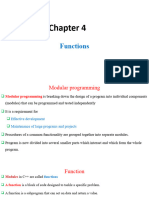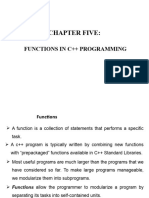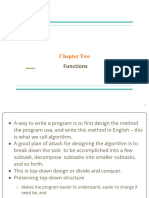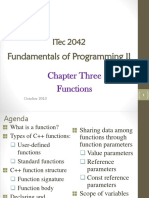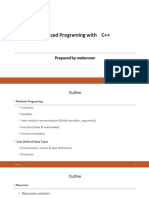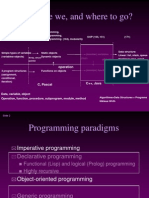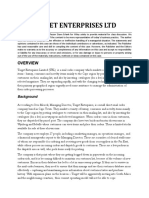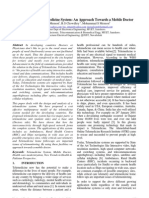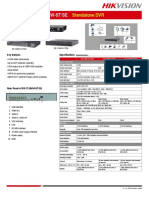0% found this document useful (0 votes)
9 views40 pagesLec 06 Functions I
Uploaded by
ابانوب سامي بولسCopyright
© © All Rights Reserved
We take content rights seriously. If you suspect this is your content, claim it here.
Available Formats
Download as PDF, TXT or read online on Scribd
0% found this document useful (0 votes)
9 views40 pagesLec 06 Functions I
Uploaded by
ابانوب سامي بولسCopyright
© © All Rights Reserved
We take content rights seriously. If you suspect this is your content, claim it here.
Available Formats
Download as PDF, TXT or read online on Scribd
/ 40



